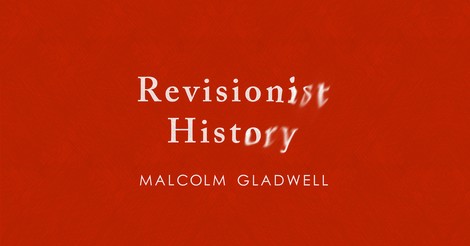Your podcast discovery platform
Curious minds select the most fascinating podcasts from around the world. Discover hand-piqd audio recommendations on your favorite topics.

piqer for: Health and Sanity Global finds
I was born in 1987 in Bucharest. I studied Psychology and Educational Sciences at the University of Bucharest. For two years I worked in a psychotherapy practice, dealing with gambling addicts. I'm an independent reporter, writing and doing video reportages mostly about social and political issues. I am currently based in Jena.
Podcast: The Friendship That Altered The Course Of British Policy In World War II
"How does friendship influence political power?" asks Malcolm Gladwell in this episode of Revisionist History, his podcast about things overlooked and misunderstood.
The story starts off with the 1943 famine in India, which killed three million people, and its causes. Here's where Frederick Lindemann and Winston Churchill enter the scene. Lindemann was an eccentric physicist, who wore a buttoned-up shirt and boots for tennis and who would not shy away from using a false argument if by doing so he could tie up one of his opponents. And Churchill — well, you know who he was. The two were best friends and each valued friendship above all other virtues. The Prof, as Lindemann was known, defined a moral action as an action that brings advantage to his friends.
Churchill asked for The Prof's advice on the strategic bombing of Germany (i.e. killing of civilians) during WWII and made him the logistics man in the war cabinet. This meant it was up to Lindemann to decide whether to ship food over to the starving Indians or not. Lindemann did not only refuse to do it, but he also turned down Canada's offer to help (which brings to mind the more recent similar situation in Venezuela). Just to be clear, the UK had so much surplus wheat at the time that the Americans, who were the source of a lot of it, got suspicious that the British were stocking up on grains to sell them after the war ended.
So, why did The Prof act in such a heartless manner? You probably guessed it: he did it for his friend, Churchill.
P.S.: If you're especially interested in the subject of power, you may want to listen to the whole season two, because it focuses on that. For example, other episodes are about the way shifts in power change the way we remember the past and about our reluctance to acknowledge the role of power.
